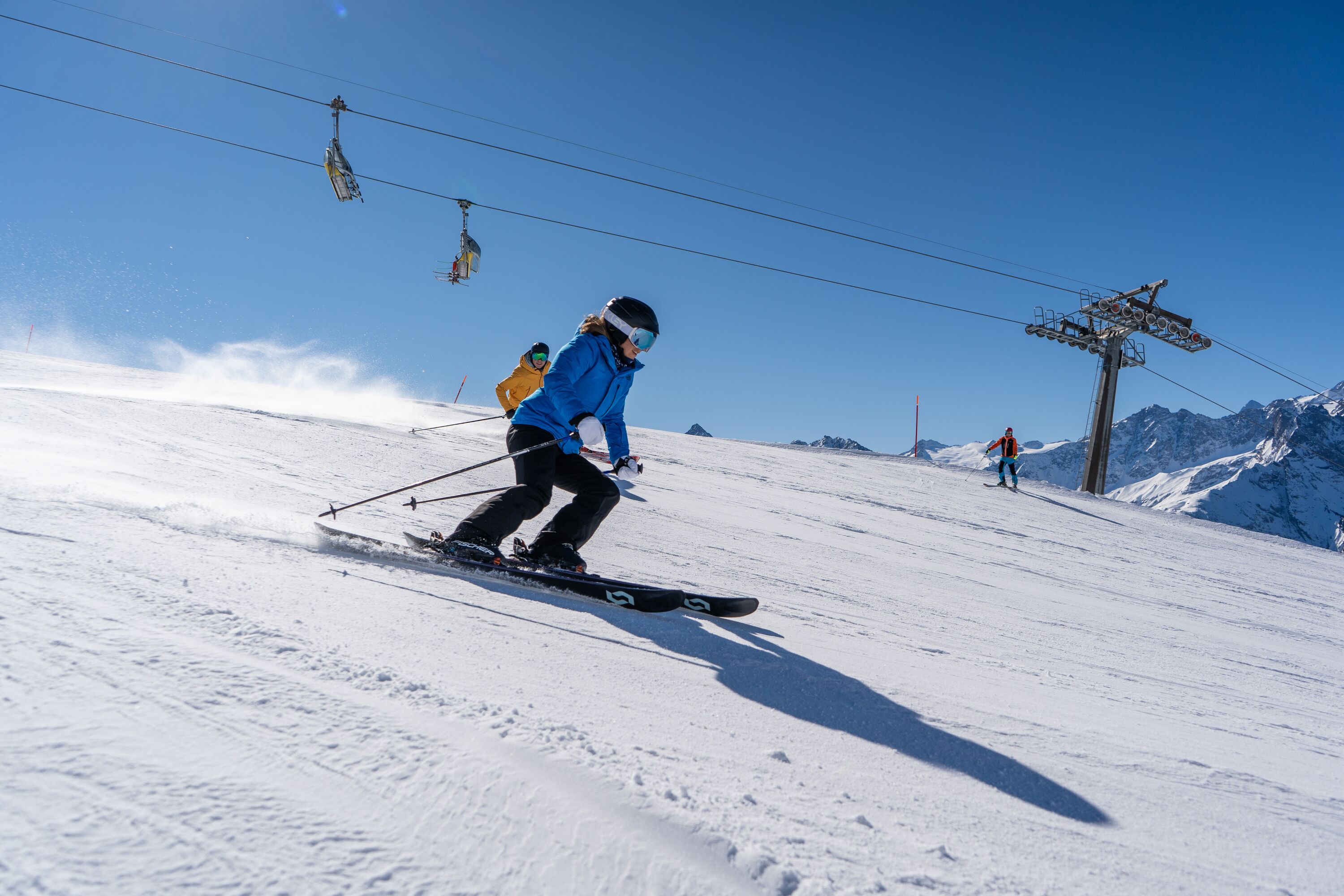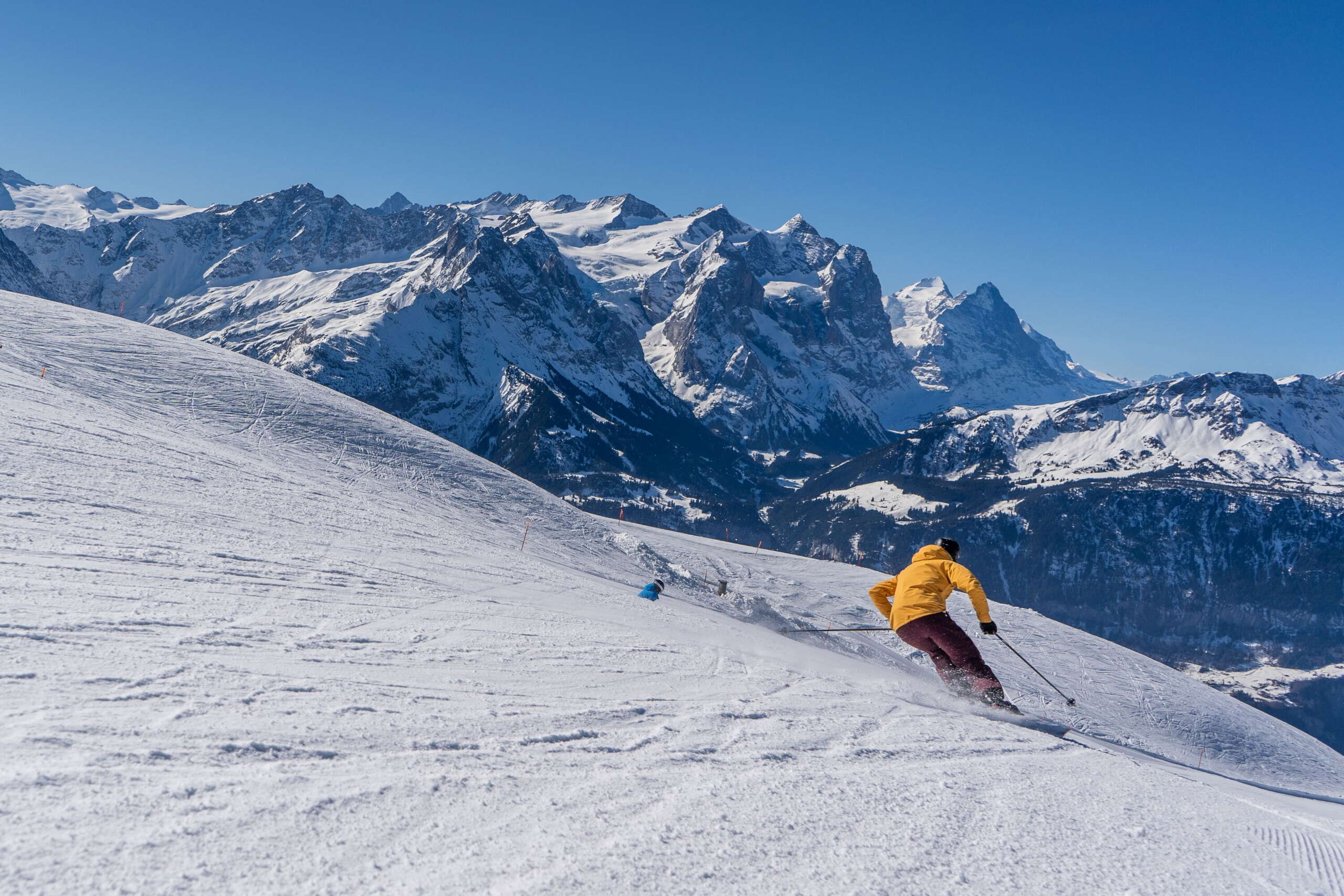What are the FIS rules?
FIS stands for Fédération Internationale de Ski. FIS rules are the rules of conduct that everyone on the slopes has to follow. Ski instructors teach beginners the basic rules when they hit the slopes for the first time.
Because the rules are simple and intuitive, there is no need for a special test. There is also no specific penalty if you break one of the rules. However, in the event of an accident, the question of whether or not the person responsible for the accident has complied with the FIS rules may well be relevant – for example if there are claims for damages or for compensation for pain and suffering.
The first and most important rule on the slopes is to be considerate towards each other. To ensure that nobody is put at risk and that the focus remains on having fun, all winter sports participants must ensure that their behaviour does not endanger, harm or otherwise restrict others in any way. Factors that have to be considered include choosing an appropriate speed that is suitable for the conditions in terms of visibility and traffic density. After all, if you hurtle down the slope at high speed despite not being able to see very far due to heavy snow, you run the risk of crashing into other skiers. This behaviour would breach several FIS rules and endanger yourself and others.
The FIS rules also set out clear guidelines for overtaking manoeuvres, stopping on the slope and starting up again after a stop. Every skier and snowboarder skis and snowboards at their own pace. Naturally, that means you may have to overtake people moving slower than you. You can overtake on either side. What’s important when overtaking is that you keep enough distance between yourself and others so that no one is put at risk.
Stopping in the middle of the descent should always be avoided, as this makes you an obstacle for others on the slope. However, if you do need to take a break or wait for companions who are descending at a slower pace, you should head for the edge of the slope. However, even when doing this, you must take into account the flow of traffic from above so that you don’t cause anyone to perform dangerous evasive manoeuvres.
When you want to set off again, it’s important to remember that those already descending the slope have priority. This means that you need to look in all directions before setting off again to ensure that you don’t put anyone at risk. Furthermore, all winter sports participants should be aware of their own skill level. If you aren’t able to pick up speed quickly, it’s better to wait for a larger gap in the traffic than to try to squeeze in somewhere.
Even when all the appropriate precautions are taken, accidents can still happen. When they do, according to the FIS rules, all winter sports participants are obligated to give first aid. Just as in any other situation in life, you should help as far as you are able. Even if all you can do is call the rescue team, the important thing is not to look the other way when someone has a fall.
After a collision, everyone who was involved or witnessed it is obligated to show identification. This means that all winter sports participants need to carry their identification on them when on the slopes.
There is no fine or other penalty to pay if you break the FIS rules. However, if an accident occurs, the behaviour of the winter sports participants involved is relevant. For example, in November 2008, there was a case in which a young man tried to overtake a slower skier on the slope but collided with her (Higher Regional Court of Hamm, case no. I-13 U 81/08). Because the health insurance company of the injured party refused to cover the costs of her treatment, she sued for compensation for pain and suffering and for reimbursement of the treatment costs. Since the overtaking skier broke the FIS rules when he caused the accident by not keeping enough distance during his overtaking manoeuvre, the court ruled that he was liable to pay.
This free eBook covers all other FIS rules and other relevant regulations, such as rules concerning alcohol consumption on the slopes.



